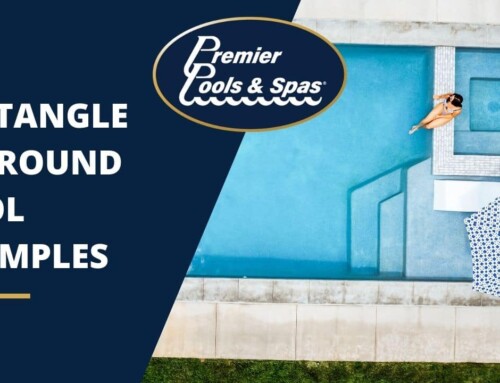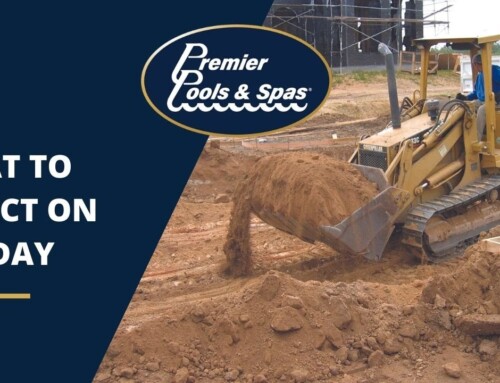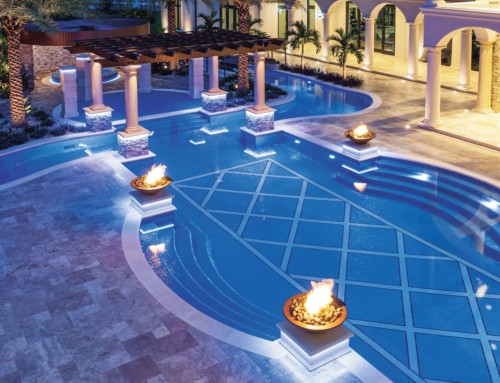
With 10.4 million residential swimming pools in the US, kids and adults everywhere get to stay cool and get exercise during the warmer months. Which is perfect since swimming is the fourth most popular activity or sport in America.
It makes sense that California and Florida are the two most popular states to have an in-ground swimming pool in a residential backyard. But that doesn’t mean they’re the only two states where a pool is an added benefit.
Many homeowners wonder, “does a pool add value to a home”? It’s worth it to do some research before you install one in your backyard.
We want to help you make the right decision. Keep reading to learn whether adding a pool to your home makes sense.
Does a Pool Add Value to a Home?
There are very specific times when adding a pool to your home makes good economic sense. If you live in a warmer climate such as Hawaii or Texas, it makes sense to have a pool because you can use it for a longer period of time.
A pool in Maine may make less sense since their warm season is much shorter. However, if you live in a higher-end neighborhood where or all of your neighbors have pools, it’s a good idea to put one in.
In fact, if most of your neighbors have pools, not having one may make it harder for you to sell your home. You do need to ensure the style of the pool fits well with your home and neighborhood. It also needs to be well maintained.
Make Sure Your Yard and Market Conditions Can Handle a Pool
However, before you do anything, make sure your property is large enough to accommodate a pool without it taking over the entire yard.
Current market conditions can also determine whether it’s worth it to add a pool. Appraisers may assess pool resale value to a home anywhere from $10,00, $20,000 or even $40,000. Meanwhile, the installation may cost $20,000.
What Type of Pool You Install Matters
Your pool resale value depends on what type of pool you install. An above-ground pool won’t have as high resale value as an in-ground pool will, even if you live in a warmer climate.
It also depends on what materials you use to install your pool. There are three types of materials pools are made out of and there are pros and cons to each.
Fiberglass Pools
Fiberglass pools are premade shells which can be placed directly into the ground. You can customize it with lighting, tanning shelves, steps, and even custom edge treatments.
There are many advantages to a fiberglass pool such as:
- Easy to maintain
- Can be quickly installed
- Durable
- Attractive
- Compatible with salt systems
Fiberglass pools have decent resale value because they require little maintenance, look great, and last for a long time. It’s also the least expensive to maintain.
Disadvantages of a Fiberglass Pool
The initial costs are higher than with vinyl pools. They also are not customizable, which means they may not fit well with your neighborhood or property.
Vinyl Pools
You can apply a vinyl liner to wood, cement, steel or polymer. Vinyl creates a smooth and flexible pool.
It’s also resistant to algae and cracking. The advantages of a vinyl pool are:
- Can customize shape and size
- Low initial cost
Disadvantages of a Vinyl Pool
However, vinyl pools come with a few disadvantages. You’ll have to keep replacing the vinyl lining every 10 years or so. You’ll also have to watch out for tears and leaks. Otherwise, your pool liner can shift and bubble up.
If you sell your home, there’s a good chance the buyer may request you replace the liner as part of the sale.
Concrete Pools
Concrete pools do have a decent resale value. Some of the other benefits of a concrete pool are:
- Can customize shape and size
- Durable
Disadvantages of Concrete Pools
However, concrete pools also come with quite a few disadvantages such as:
- Requires a lot of maintenance
- Prone to algae and requires the use of a lot of chemicals
- Rough interior surface
- Slow installation time
- Incompatible with salt
It’s also expensive to install and expensive to maintain.
Common Maintenance Costs
If you live in Florida or Hawaii, you can keep your pool open year-round. If you live in a state like New Jersey or Vermont, you’ll need to close and winterize your pool, which costs a few hundred dollars.
Then there are the monthly maintenance costs. Most pool owners have little interest in maintaining the pool themselves.
Maintaining Your Pool Yourself Takes Time and Money
If you do plan on doing it yourself, plan on spending a fair amount of time and money on doing things like skimming and shocking the pool.
You’ll also need to buy the proper tools to clean your pool.
Typical Pool Cleaning Duties
You’ll most likely have to pay a pool cleaning service to perform some of the following duties:
- Test the water’s pH
- Check filters
- Check settings
- Check equipment
- Brushing the surface
- Vacuuming the pool
- Skimming the pool
- Emptying traps and baskets
Keep in mind that if you plan on doing it yourself chlorine bags weigh between 24-50 pounds and cost anywhere from $55 to $120.
Types of Water
Most of us grew up swimming in chlorinated pools. We may even associate certain childhood memories with the smell of chlorine.
However, today saltwater is a more earth-friendly, less smelly option. It’s also less likely to eat away at your bathing suit as quickly.
Saltwater Pools Still Use Chlorine
But saltwater is not chlorine-free. Saltwater pools use a salt cell or generator to break down sodium chloride in the water. It still creates chlorine but it doesn’t irritate the chloramines saving you from that chlorinated smell.
Saline pools will cost you more upfront but you’ll save on operating costs. Keep in mind that salt will degrade metal components in or near your pool.
Consider Investing in a Mineral Pool System
You can also opt for a mineral pool system. A mineral pool system uses magnesium chloride, sodium chloride, and potassium chloride.
These various forms of chloride work together to keep your pool clean while cutting your chlorine use in half. You may also prefer the way mineral pool water feels which is soft and silky. It also won’t corrode metal objects as a saline system will.
Filtration and Heating Costs
Invest in an efficient filtration pump. This pump is the biggest energy sucker in your pool system. Thankfully, newer versions that offer variable speeds use 80% less energy than the old single-speed pumps.
To save money, see if your local utility company offers a rebate on filtration pumps through a participating pool dealer. Remember to run your pump at non-peak times to save money on electricity costs.
Heating Costs
No one enjoys hopping into a freezing cold pool unless they’re a member of the Polar Bear Club. Since most of us aren’t, you may also want to opt for a gas heater.
While they are inexpensive to purchase and install, they do have the highest operation and maintenance costs. For that reason, many homeowners opt for an electric heat pump versus a gas heat pump.
Electric Heat Pumps Are Less Expensive
Electric heat pumps work by extracting heat from the surrounding air. It’s then transferred to the water.
An electric heating pump does take longer than a gas pump to heat the pool, but you’ll save on energy costs. You can also cover your pool with a solar blanket that traps heat and reduces evaporation to further reduce operating costs.
Insurance Costs
Don’t forget that your liability increases when you have a pool on your property. Expect that your home insurance fees will go up.
While most policies do cover pool-related incidents, it’s a smart idea to increase your liability from $100,000 to $500,000. That should amount to about $30 or more per year.
Noise and Other Considerations
If you have kids, they’ll probably love the idea of having a pool installed. But consider the increased noise level of kids splashing around all day.
You also have to consider the safety of anyone using the pool. However, if you still want the pool, tell your builder to pace your pool further away from your door or neighbors to lessen the noise levels.
You should also invest in safety fences to ensure small kids, animals, and everyone else stays out of the pool area unless they’re invited.
A Good Investment If You Maintain it
Does a pool add value to a home? Like all other home improvement projects, the investment is only worth it if you properly maintain your pool.
If you invest time and money in installing a well-designed pool that your family will enjoy for years, it can very well up your resale value when it comes time to sell.
We’re here to help you install the perfect pool for your family. And we’re in 45 different locations around the country. Click here to speak to one of our pool representatives.



